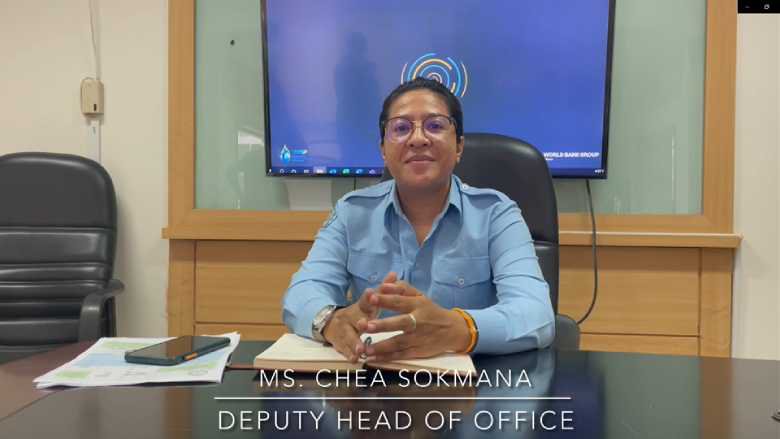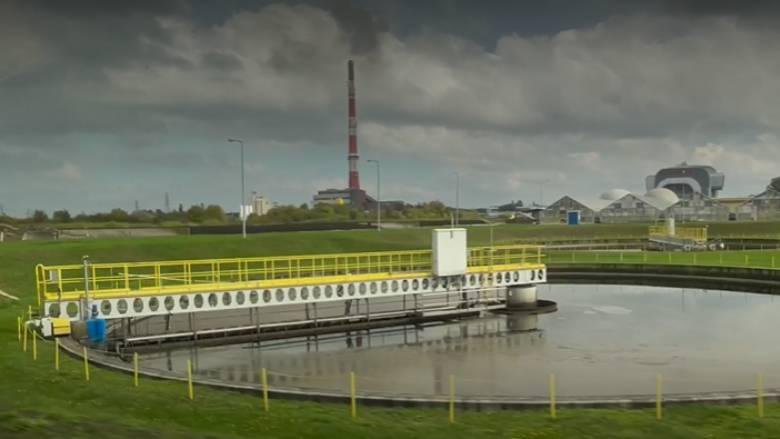Beneficiary Quote
"Thanks to the Utility of the Future program we identified several 'quick-win' actions that are making our utility perform better as we deliver better services to our clients. For example, in less than 50 days after the launch of the program we optimized our billing process. Now, we don’t need any signatures from the managers of the utility (we needed 3 signatures before) and have digitalized the process. This is improving our commercial system and is allowing us to bill all customers in time, which we expect will increase our revenues in the short term, helping to make the utility financially sustainable." —Ms. Chea Sokmana, Deputy Head of Office of Siem Reap Sewerage and Wastewater Treatment Plant Unit, Cambodia
More testimonials from the program: Mozambique-Maputo, Mozambique-XaiXai, Zambia-Nkana, and Indonesia-Palembang.
Challenge
Worldwide, 2.4 billion people remain without access to improved sanitation, and nearly 0.7 billion remain without access to improved drinking water sources. Those who have access to water supply and sanitation services often must cope with intermittent water supply, sewerage system overflows, and poor customer service. Poor service frequently stems from a vicious cycle of dysfunctional political environments and inefficient practices. Global forces—including climate change, water scarcity, population growth, and rapid urbanization—exacerbate these challenges to providing high-quality, sustainable water supply and sanitation service delivery. Utilities throughout our client countries—who are at the center of meeting the aspirational goal of universal access to water and sanitation services—are faced with the challenge of matching supply with demand given serious capacity and resource constraints. Therefore, water supply and sanitation utilities require a new approach to planning and sequencing reforms in order to provide services in a sustainable manner.
Approach
The Utility of the Future (UoF) developed a simple methodology and user-friendly tools to guide utilities in the process of transformation and continuous improvement by involving and empowering utility staff from the beginning to take ownership of the change. The UoF program provides this a new approach, building on an extensive body of knowledge on utility performance improvement.
The UoF Program contains a portfolio of more than 150 processes covering all aspects of utility performance and management, which guides participating utilities in their efforts to improve the services offered. In addition to the guidance provided across the traditional elements of utility performance such as commercial management, financial management, strategic planning, technical operations, and human resources, the program inspires utilities to be better prepared for the future by exposing them to best-fit practices related to innovation, inclusion, market orientation and resilience.
The Utility of the Future Program follows a human-centered approach that places people/staff at the center of the transformation process, ensuring that they are not only part of the process but that they are empowered and take ownership of the results. Therefore, the UoF program tries to involve as many utility staff as possible in the process, so they are part of the analysis of the state of the utility, the identification of ideas and solutions to improve, and the implementation of improvement actions to ensure the sustainability of improvements over the long term.
The utilities that are part of the program participate in different knowledge exchange scenarios with other utilities around the world such as cross-fertilization workshops between utilities to share experiences and best practices.
For UoF to be scalable, a “franchise” operation scheme was developed, where consultants and/or local institutions are trained in the countries to replicate the program, in addition to strengthening local capacities. To date, more than 20 consultants and/or institutions have been trained in Albania, Bosnia, Cambodia, Kenya, Kosovo, Lebanon, Moldova, Mozambique, Nigeria, Peru, the Philippines, Poland, and Zambia, among others.

